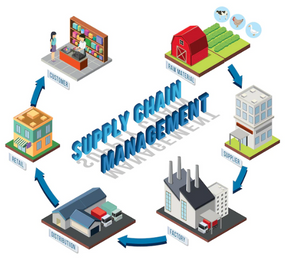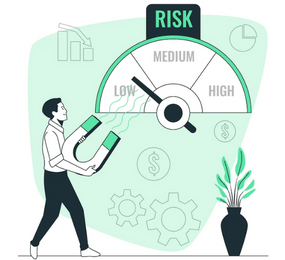The process of locating, evaluating, and reducing risks that may affect the flow of products and services from suppliers to consumers is known as supply chain risk management (SCRM). It entails adopting proactive measures to lessen the likelihood and effects of supply chain interruptions.
Risk awareness is one of SCRM's key components. As a result, those who are involved in the supply chain should be aware of the dangers that could arise at every stage of the procedure. Natural catastrophes, cyberattacks, political unrest, supplier bankruptcies, and other hazards are included in this. Individuals can take action to limit these risks and lessen their influence on the supply chain by being aware of them.
Another important facet of SCRM is internal acceptance. This refers to employees' readiness to accept risks and take precautions to reduce them inside an organisation. Effective risk management solutions can be challenging to put into practice without internal acceptance.
It's important to emphasise the significance of SCRM within the organisation in order to win internal approval. Training courses, workshops, and other forms of communication can accomplish this. Participation in the SCRM process by people from all organisational levels and departments is also important. The support and buy-in for risk management strategies may increase as a result.
Ultimately, SCRM is an important process that may ensure the supply chain runs without a hitch. By being aware of potential risks and achieving internal acceptance for risk management strategies, organisations can reduce the likelihood and impact of disruptions to the supply chain.
Find out more on “Risk Awareness in General and Internal Acceptance” on 30th May - 1st June, 2023 at the Supply Chain Risk and Resilience Forum, in Berlin, Germany so you don't feel left out in the industry!
To register or learn more about the Forum please check here: https://bit.ly/3DsfWE4
For more information and group participation, contact us: [email protected]
















